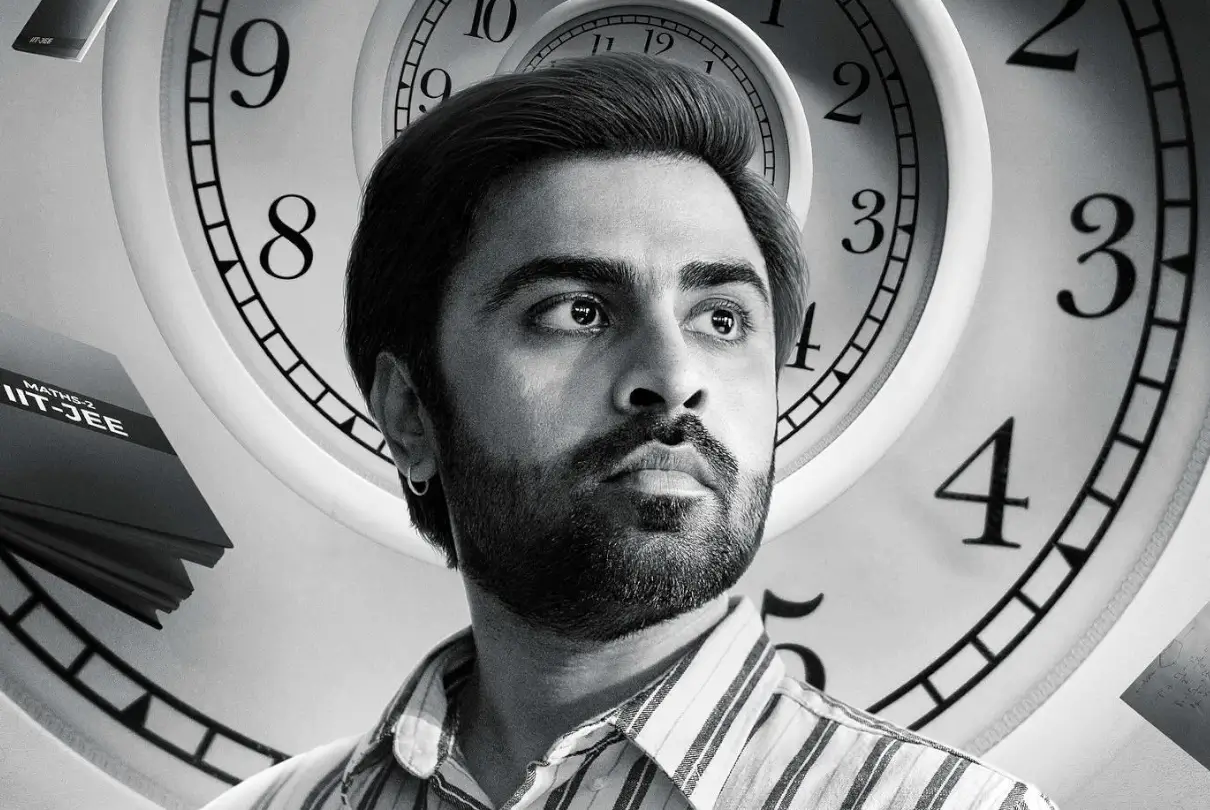Physical Address
304 North Cardinal St.
Dorchester Center, MA 02124

Kota Factory Season 3 Review: Unpacking the Complexities of Student Life and Educational Systems
The third season of Kota Factory arrives with high expectations and a critical lens on the educational pressures faced by students in Kota, the coaching capital of India. Created by Arunabh Kumar and directed by Pratish Mehta, this season continues to delve into the lives of students preparing for competitive exams like IIT and NEET, while also focusing on the evolving role of Jeetu Bhaiya, portrayed by Jitendra Kumar, as he navigates his own personal and professional challenges.
The series retains its core cast from previous seasons, featuring Jitendra Kumar as Jeetu Bhaiya, along with Vaibhav More, Ranjan Raj, Alam Khan, Ahsaas Channa, Revathi Pillai, Urvi Singh, Rajesh Kumar, and Tilottama Shome in pivotal roles. The addition of Rajesh Kumar and Tilottama Shome adds depth to the narrative, bringing new dimensions to the character dynamics within the Kota coaching environment. Also Read- Panchayat 3 Trailer Review: Jitendra Kumar, Neena Gupta and Raghubir Yadav’s Show Serves You Rural Politics and Romance in Phulera
Kota Factory initially captivated audiences with its portrayal of the rigorous coaching culture in Kota, where students grapple with academic pressures and personal dilemmas. The first season introduced Jeetu Bhaiya as a mentor figure who challenges the traditional dichotomy between studious and less studious students. Season two expanded on these themes, delving deeper into personal struggles and Jeetu Bhaiya’s own journey as he contemplates establishing his own coaching institute.
The third season of Kota Factory marks a shift in focus, balancing the narratives of both students and teachers alike. Jeetu Bhaiya’s character arc becomes more introspective as he confronts the emotional toll of student suicides and the moral dilemmas of academic pressure. The season explores themes of mental health, educational policies, and the ethical responsibilities of educators in shaping young minds.
The strength of Kota Factory has always been its poignant dialogues and insightful scripts. Season 3 continues this tradition with dialogues that reflect the complexities of student life and the educational system. However, there are moments where the narrative loses its momentum, particularly in subplots that feel disconnected or underdeveloped.
Jitendra Kumar’s portrayal of Jeetu Bhaiya remains a standout, showcasing his versatility and depth as an actor. Vaibhav More and Ranjan Raj deliver strong performances, portraying the internal struggles and aspirations of their characters with conviction. Rajesh Kumar and Tilottama Shome bring new dimensions to the series, enriching the ensemble with their nuanced portrayals.
Pratish Mehta’s direction enhances the series with a focus on realism and authenticity, capturing the gritty yet aspirational atmosphere of Kota. The cinematography effectively portrays the claustrophobic coaching classrooms juxtaposed with the expansive landscapes of the city, reflecting the contrasting realities faced by its inhabitants.
The musical score in Kota Factory Season 3 plays a crucial role in setting the tone and mood of each scene. While the soundtrack complements the narrative at times, there are instances where the music feels out of place or fails to resonate with the emotional depth of the storyline.
Kota Factory Season 3 succeeds in addressing pertinent issues within the education system and society at large. Jeetu Bhaiya’s evolution as a character resonates with viewers, as he grapples with ethical dilemmas and personal demons. The series’ exploration of student suicides and mental health issues adds a layer of realism, highlighting the pressures faced by young aspirants.
However, the season occasionally falters in its pacing and narrative cohesion. Subplots involving peripheral characters, such as Vartika’s struggles with self-esteem or Shivangi’s exam anxiety, are introduced but lack sufficient development. This leaves certain story arcs feeling unresolved or superficial. Also Read- Ali Fazal Discusses His Role as Guddu Pandit in Mirzapur Season 3: Says “It is the Character I Don’t Belong to, but I Have Tried to Make Sense of It”; Read More to Get Full Details!
Despite its shortcomings, Kota Factory Season 3 remains a compelling watch, offering insights into the complexities of student life and the educational landscape of Kota. Jitendra Kumar’s nuanced performance, coupled with strong supporting cast members, ensures that the series continues to resonate with audiences. As the narrative unfolds, viewers are treated to moments of introspection, poignant dialogue, and social commentary that elevate the storytelling beyond its academic setting.
In conclusion, Kota Factory Season 3 may not be flawless, but its exploration of pertinent themes and character dynamics makes it a worthy addition to the series. As Jeetu Bhaiya navigates the challenges of mentoring young minds, the series prompts viewers to reflect on the broader implications of educational pressures and societal expectations.